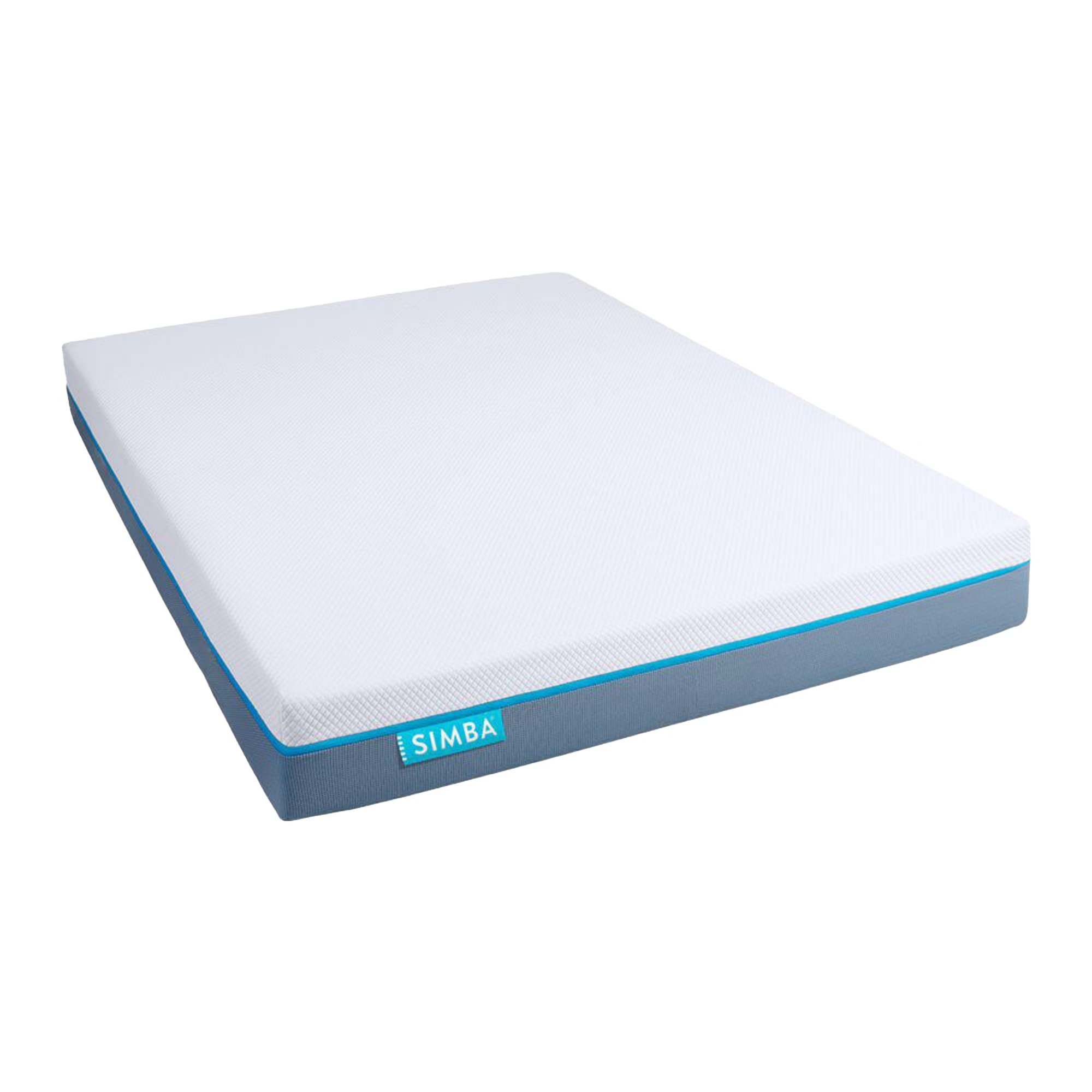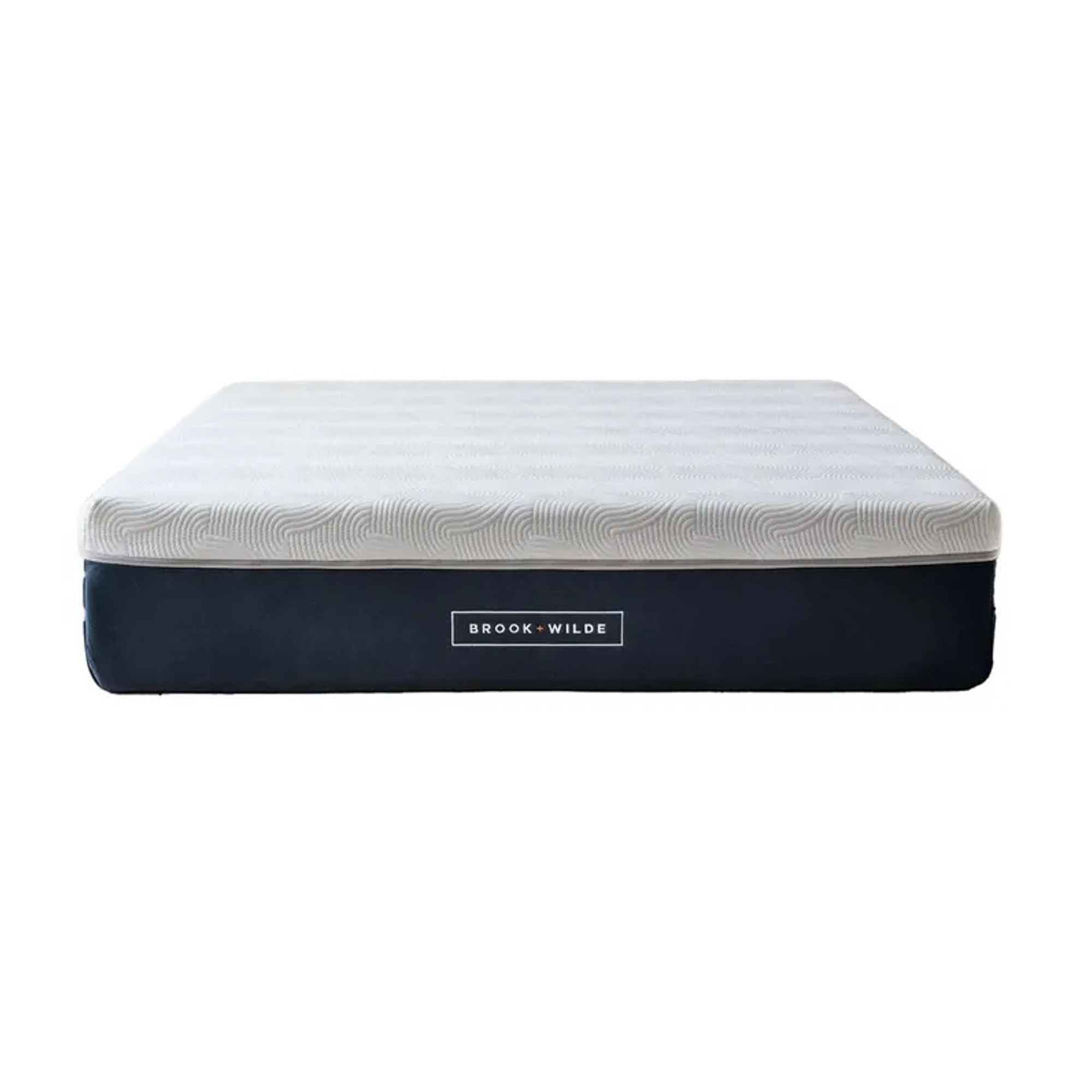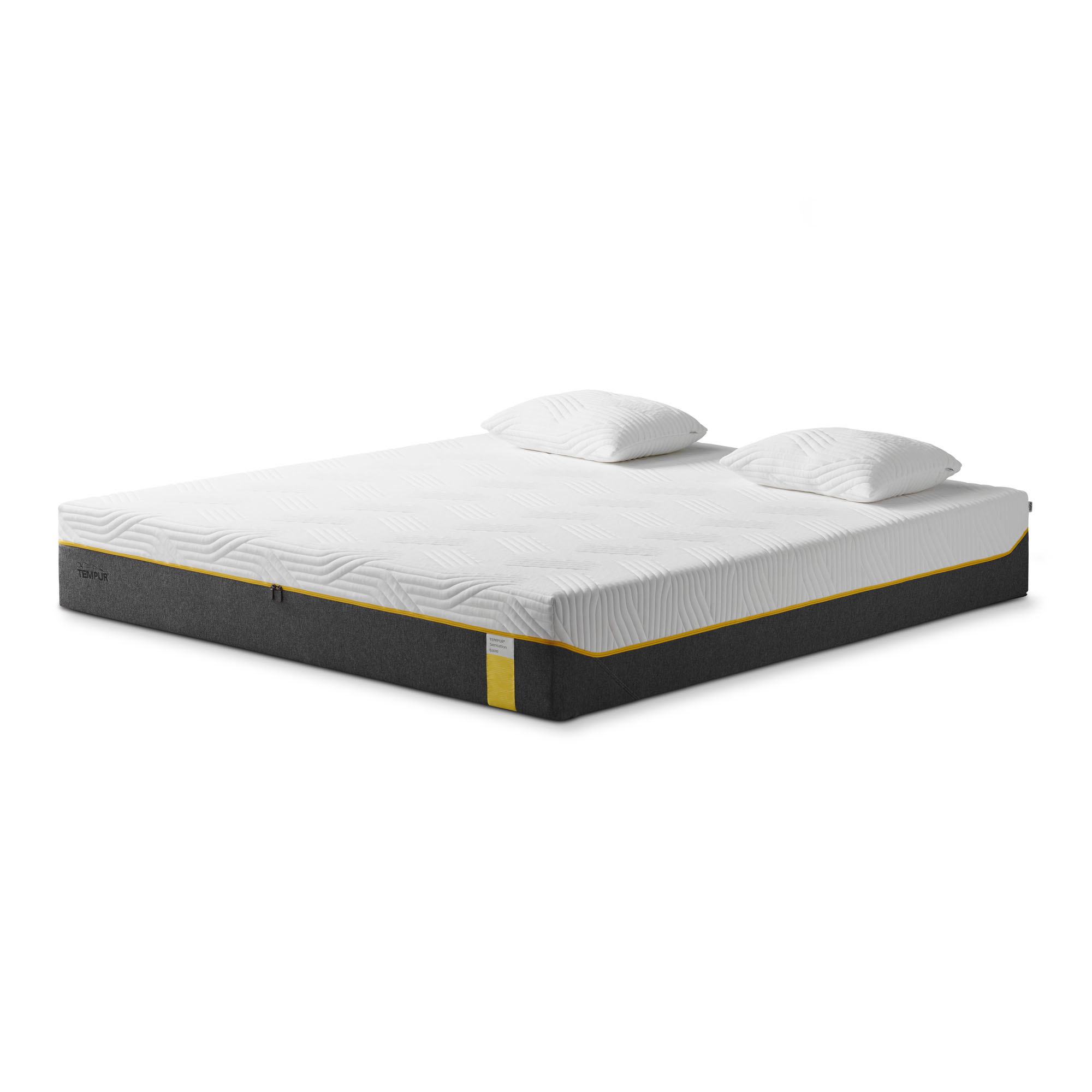
When we think of the best mattress that money can buy, many of us envisage a memory foam mattress. But, how long do memory foam mattresses last on average, and will one prove a good investment in the long term?
Whether you opt for a memory foam hybrid mattress or pure memory foam, these mattresses are popular for good reason – largely the super cushioning comfort they provide.
But can this malleable material stand up to the test of time? We asked various sleep experts what the average lifespan of a memory foam mattress is, and how long one should last with daily use.

How long do memory foam mattresses last?
If you're pondering how often you should change a mattress, the advice is generally every seven to ten years, and this applies to how long a memory foam mattress lasts too.
'Generally speaking, we should change our mattresses around every eight years; this is for hygiene purposes mainly,' advises Hannah Shore, sleep expert at mattress and bedding manufacturer Silentnight.
However, memory foam mattresses can last you up to ten years with the right care and maintenance, according to Mary Love, head of product and innovation at popular mattress brand Simba.
Plus, there are several factors that can help to extend the life of your mattress.
'A good mattress is vital to maintain good sleep wellness, so it's important to recognise when yours might need replacing. How long a foam mattress lasts will be dependent on how it's cared for in its lifetime,' explains Theresa Schnorbach, sleep scientist at mattress manufacturer Emma, which specialises in memory foam hybrid and pure foam mattress-in-a-box.
Below we've rounded up a few things to look out for when shopping for a memory foam mattress that has longevity.

1. Quality, thickness, and composition
'Higher-quality mattresses usually have a longer lifespan compared to lower-quality ones. In other words, you get what you pay for,' says Mary from Simba.
'When shopping for a memory foam mattress, it's important to consider the thickness and composition of the foam as this will determine how a mattress feels as well as its longevity,' explains Victoria Cedeno, brand specialist at affordable mattress manufacturer Zinus.
'For example, a thicker mattress will feel plusher, as the additional foam layers allow sleepers to sink further into the mattress, achieving more of that cradled, moulded effect'.
A hybrid mattress that features a sprung base layer with a memory foam upper layer may also last longer than a pure foam mattress as it has more structural support.
Here are some tried and tested memory foam mattresses that the Ideal Home team has put through their paces and recommends.

A hybrid mattress-in-a-box that features a pocket spring base layer for support with a cushioned memory foam top layer, this good value mattress is a crowd-pleaser.

It's more of an investment, but this hybrid memory foam mattress offers a choice of three firmness levels that make it easier to find the right tension for your sleep style.

An all-foam mattress with no springs in sight, Tempur's Sensation mattress is a rarity in the world of memory foam mattresses in that it also offers three tension options.
2. Usage
'The frequency and intensity of use can play a big role in how long your mattress will last. Any wear and tear created by daily usage and extra or heavier weight can contribute to reducing the lifespan of your mattress,' explains Mary Love at Simba.

3. Maintenance
There are a few things you can do to prolong the lifespan of your memory foam mattress to ensure you can maximise it and keep it in top condition for many more years to come.
'You can protect your mattress and increase its lifespan by protecting it from moisture, dust and debris. One way to do this is to invest in a mattress protector which can be more easily removed and washed to help keep your mattress clean,' advises Theresa Schnorbach at Emma.

'Regular cleaning of your mattress can also help improve the air quality in your bedroom and even aid sleep – I’d recommend cleaning your mattress every six months.' You can find out how to clean a mattress in our dedicated guide.
Victoria Cedeno at Zinus also suggests rotating your mattress regularly. This helps to distribute your weight evenly across the surface and prevents dips from forming in your usual sleep position. We asked the experts how often you should rotate a mattress, and on average they recommended once every one to three months.

The signs it's time for a new one
'Most foam mattresses can last you around seven to ten years, however, there are some key signs that would suggest your mattress is in need of replacing,' says Theresa Schnorbach at Emma.
- Sagging – If your mattress is visibly sagging and doesn't return to its original shape shortly after you take your weight off it, then you may want to consider getting a new one.
- Nasty smells – Odour is a surefire sign that your mattress is due a replacement as this can be a sign that mould or fungi have developed in the mattress.
- Aches and pains – Waking up in pain in the morning, especially if you experience lower back pain when you don’t normally, could be another sign you need to invest in a new mattress.

So there we go, a few top tips to ensure you get the most bang for your buck when investing in a memory foam mattress and increase its lifespan so you can enjoy a comfortable sleep for longer.
And, of course, once your memory foam mattress does reach the end of its lifespan, you'll not only be considering a new option, but also pondering how to get rid of your old mattress responsibly. This can be tricky with a memory foam mattress as the viscoelastic material isn't recyclable and doesn't biodegrade. That means your old memory foam mattress could end up in landfill which is harmful for the environment.
There are some ingenious ways of repurposing memory foam yourself – our guides to how to reuse an old mattress in the garden and how to reuse memory foam at home have some clever ideas – but it's often quicker, easier, and better for the environement to enlist the help of dedicated professionals to salvage as many usable parts from your old mattress as possible. Our guide to how to recycle a mattress has all the advice you'll need.







